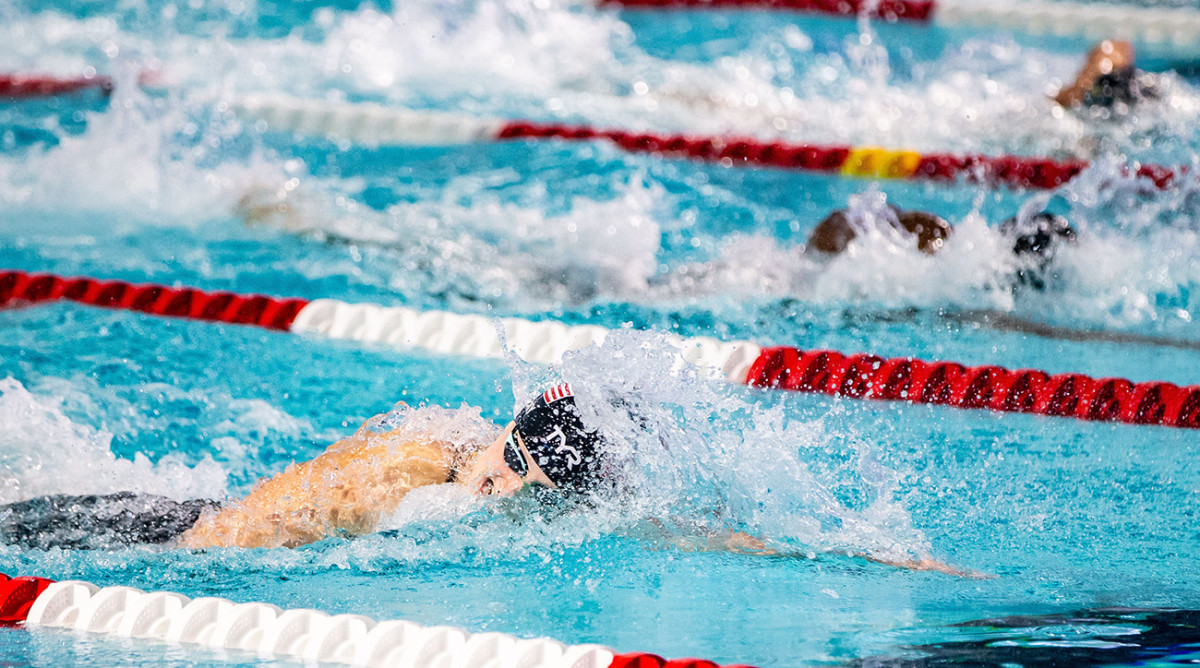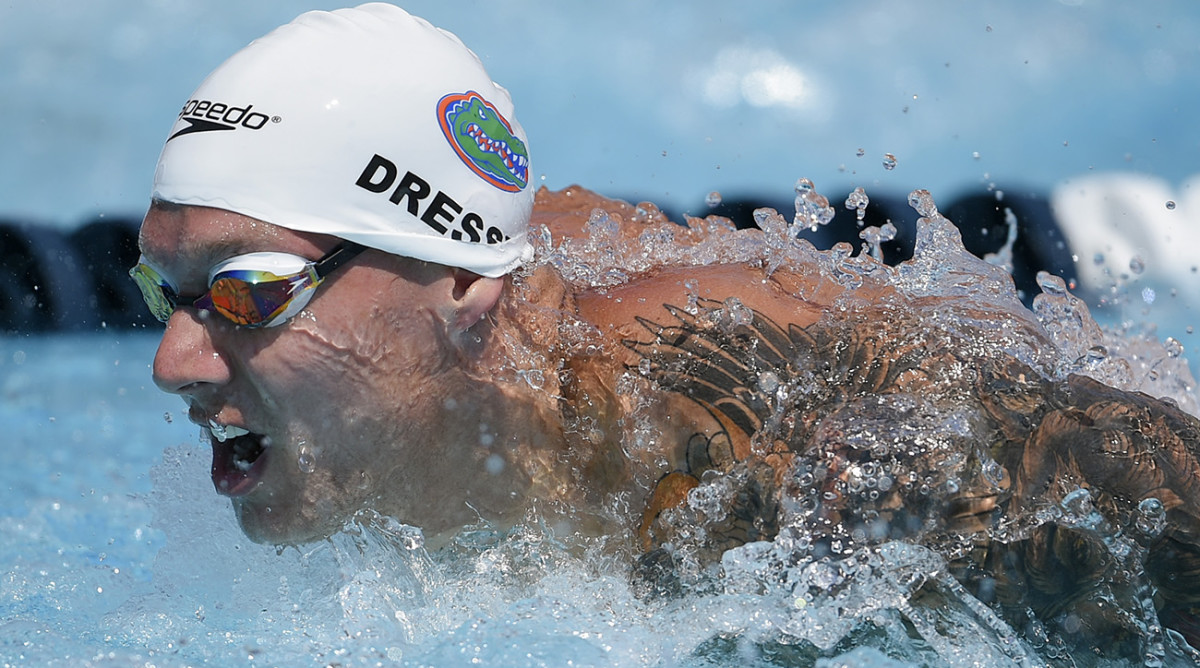Predicting Results for Each Event of the U.S. Olympic Swimming Trials

America’s traditional dominance in Olympic swimming always starts at Olympic Trials, a pressurized week of elite competition in which some of the best swimmers in the world won’t make the U.S. team.
The Trials meet tends to produce both the expected and unexpected, with established stars asserting themselves and new faces staging upsets. Let’s take a shot at predicting how the races will go down in Omaha from June 13-20.
(Top two finishers in each event will make the American Olympic team, with the top six likely to qualify in the 100- and 200-meter freestyles to fill out relays. For conflict of interest purposes, I will refrain from picking four women’s events that my daughter, Brooke, is expected to swim.)

Women’s events:
50 freestyle — 1. Simone Manuel, 2. Abbey Weitzeil.
Manuel is the star of American sprint freestyle, having won four medals in the 2016 Olympics and a female record seven at the 2019 World Championships in Korea. She hasn’t been on her "A" game in 2021, working through some health issues that curtailed her training this spring, but she is a clutch performer who figures to answer the bell here. Weitzeil won two medals in Rio de Janeiro as a relay swimmer. Dark horse: Kate Douglass.
100 free — 1. Manuel, 2. Weitzeil, 3. Olivia Smoliga, 4. Claire Curzan, 5. Torri Huske, 6. Erika Brown.
This is a big opportunity for youngsters Curzan (16) and Huske (18), part of the teenage wave of American women with a shot at making the team. Smoliga was a 2016 Olympian and has performed very well this spring; she could be a factor in many events. Dark horse: Linnea Mack.
200 free —No prediction.
But you might keep an eye on Katie Ledecky in this one. I’ve heard she’s pretty good.
400 free — 1. Ledecky, 2. Emma Nordin.
Ledecky should face competition in Tokyo from Australia’s Ariarne Titmus, but not much in Omaha. Nordin has flourished this spring under Bob Bowman after Arizona State redshirted its entire team in the college season. She has a beautiful stroke and will be a threat in several freestyle races. Dark horse: Leah Smith.
800 free — 1. Ledecky, 2. Leah Smith.
These were the two U.S. Olympians in this event in Rio, and they figure to be there again in Tokyo. Smith was fourth in the 800 in Rio and won bronze in the 400. She’s a very good swimmer who has labored in Ledecky’s long shadow for years. Dark horse: Erica Sullivan.
1500 free — 1. Ledecky, 2. Sullivan.
This is a new women’s event at the Olympic level, which gives Ledecky another clear path to another gold medal. Sullivan is part of a Sandpipers of Nevada distance group that has flexed its collective muscle this year. Dark horse: Ally McHugh.
100 backstroke — 1. Regan Smith, 2. Smoliga.
This will be the single best race of Trials. The field is absurdly stacked, with seven Americans ranked in the top 18 in the world in 2021. Smith owns the world record in the event, but expect as many as five women to be in the hunt for the top two into the final arm stroke. Dark horse: Kathleen Baker.
200 back — 1. Regan Smith, Rhyan White.
Smith hasn’t come too close to her world record times in either backstroke race since setting them in 2019, but it feels like she’s sitting on a big meet in Omaha. White, who just finished her junior year at Alabama, has made huge progress in 2021. Dark horse: Phoebe Bacon.
100 breaststroke — 1. Lilly King, 2. Annie Lazor.
King owns this event and will bring her customary unbreakable confidence to Trials, even though she probably will not be fully rested until next month in Tokyo. King so welcomes competition that she embraced Lazor moving her base to Indiana University to train with her. Dark horse: Molly Hannis.
200 breast — No prediction.
But King will again be difficult to beat.
100 butterfly — 1. Curzan, 2. Huske.
Here is where the youth movement could really make its mark — Curzan and Huske are the only two Americans to break 57 seconds this year. It's just a question of them handling the pressure. Dark horse: Kelsi Dahlia, if she can turn the clock back to 2018.
200 fly — 1. Hali Flickinger, 2. Katie Drabot.
“Flick” was a 2016 Olympian out of Georgia who has since moved to Arizona State to train with Bowman. She and Drabot were the American reps in this event at 2019 World Championships, but they have a host of pursuers. Dark horse: Regan Smith.
200 IM — No prediction.
But American Madisyn Cox recorded the fastest time in the world in 2021 last month in Austin.
400 IM — No prediction.
Both of America’s 2016 Olympic 400 IMers, Maya DiRado and Elizabeth Beisel, have retired. So this is a changing of the guard.

Men’s events:
50 freestyle — 1. Caeleb Dressel, 2. Ryan Held.
Dressel is a sprint monster who will be expected to lead the American men in Tokyo. He won’t be fully cranked for this meet, but should still be fast enough to win with Held in a close second. Dark horse: Nathan Adrian.
100 free — 1. Dressel, 2. Held, 3. Adrian, 4. Blake Pieroni, 5. Brooks Curry, 6. Zach Apple.
The U.S. should once again field a sizzling 400 freestyle relay, largely fueled by a veteran core. Of the above six, only Curry hasn’t had extensive international experience. Dark horse: Michael Andrew, who might only swim this in prelims to establish a time for relay consideration.
200 free — 1. Kieran Smith, 2. Andrew Seliskar, 3. Townley Haas, 4. Pieroni, 5. Jake Magahey, 6. Carson Foster.
America is looking at a pretty hard re-set in this and other longer freestyle events. The 20-year-old Smith is a rising star who could make the team in multiple events. Watch for Dressel to throw down a fast time in prelims of this event to stake out his relay spot, but probably not swim it all the way through finals. Dark horse: Drew Kibler.
400 free — 1. Kieran Smith, 2. Magahey.
The two staged a pair of sensational 500 free duels during the college season, with Florida Gator Smith winning at SEC championships and Georgia Bulldog Magahey turning the tables at NCAAs a month later. Dark horse: Trey Freeman.
800 free — 1. Bobby Finke, 2. Jordan Wilimovsky.
Finke, Smith’s teammate at Florida, is another key part of the American youth movement in distance freestyle. Wilimovsky swam both the 1,500 and open water in Rio. Dark horse: Magahey.
1500 free — 1. Finke, 2. Zane Grothe.
This might be the spot for Grothe, a 28-year-old veteran of the USA Swimming National Team who hasn’t yet made the Olympics. Dark horse: Wilimovsky.
100 backstroke — 1. Ryan Murphy, 2. Shaine Casas.
Murphy was a triple gold medalist in Rio, the world record holder in this event, and one of the linchpins of the American team. Casas is a long, intriguing talent from Texas A&M who has to handle the pressure of his first Olympic Trials. Dark horse: Matt Grevers.
200 back — 1. Murphy, 2. Casas.
This race could look a lot like the 100-meter version. Dark horse: Austin Katz.
100 breaststroke — 1. Michael Andrew, 2. Andrew Wilson.
Andrew lit up the pool in a May meet in Indianapolis in multiple events, and if he carries that over to Omaha he will make his first Olympic team in multiple events. Wilson moved his training base to Georgia and has thrived there. Dark horse: Nic Fink.
200 breast — 1. Fink, 2. Wilson.
Fink has had a very good 2021 season in both breastrokes, but seems to have especially mastered his 200-meter race strategy. Wilson will be one of several veterans in this race trying to re-connect with their 2:07 selves of past years.
M 100 butterfly — 1. Dressel, 2. Andrew.
Dressel is the world-record holder in this event and the strong favorite, but Andrew has posted the fastest American time in 2021. Dark horse: Tom Shields.
200 fly — 1. Luca Urlando, 2. Trenton Julian.
Urlando posted a blazing 1:53.78 in this at age 17 in 2019. He hasn’t been close to that time since then, but should come out of the pandemic bunker ready to take over as the top American. Julian has been the fastest American in 2021. Dark horse: Nick Albiero.
200 IM — 1. Chase Kalisz, 2. Andrew.
Kalisz has been America’s top IMer of the Post-Phelps Era. He struggled at World Championships in 2019, but when locked in will be tough to beat. Dark horse: Seliskar.
400 IM — 1. Jay Litherland, 2. Kalisz.
The Georgia teammates went 1-2 in reverse order in this event at the 2016 Trials, with Kalisz taking a silver medal in Rio and Litherland finishing fifth. Nobody finishes a 400 IM like Litherland, so look for him to be flying from behind in the final 100. Dark horse: Foster.
More Tokyo Olympics coverage:
• How the L.A. '84 Olympics Changed Everything
• Simone Biles Wins Seventh U.S. Title Ahead of Tokyo Games
• Pfizer, BioNTech to Donate Vaccines for Athletes Ahead of Tokyo Olympics
• Report: Tokyo Doctors Urge Cancelation of 2021 Olympics Due to COVID-19
